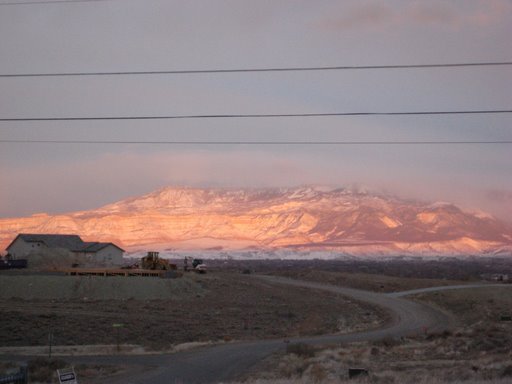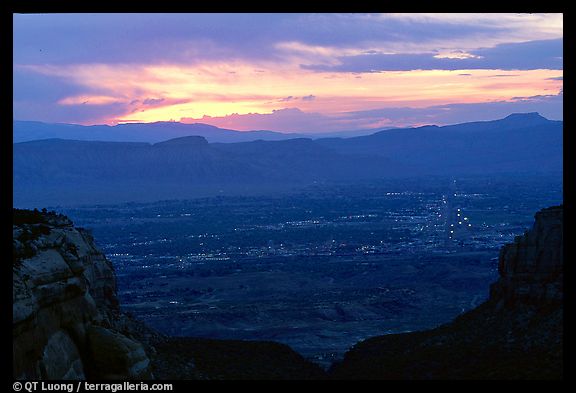Monday, June 20, 2016
Voices before PUC were against Xcel
The voices were about three-to-one against Xcel at the Public Utilities Commission (PUC) hearing on June 9.
The question at the PUC concerned part of Xcel's package of "Energy Future" filings, and whether it is in the public interest. The voices saying "no" included AARP, the Sierra Club, a distinguished climate scientist, and workers from Colorado's competitive solar industry, as well as many regular citizens who are customers of Xcel. Participants packed the main hearing room plus two overflow rooms.
The voices against said that Xcel's proposals actually would slow the adoption of solar, offer perverse incentives for using more electricity, disadvantage people on fixed or lower income, and harm the competitive solar industry.
One of Xcel's proposals is to reduce the amount homeowners with rooftop solar receive for putting kilowatt-hours onto the system — the so-called net-metering credit. Xcel claims net-metering harms other customers. Yet a recent study by the Brookings Institution finds that net-metering is actually a net benefit — for the utility and for non-solar rate-payers.
With Colorado's installed solar capacity lagging behind New Jersey (three times Colorado's) and even "sunny" Massachusetts (almost twice Colorado's), this is no time for Xcel to be putting on the brakes. As Boulder re-enters conversations with Xcel, we should be aware of what Xcel is trying to do at the PUC.
As the climate crisis accelerates, Xcel should be accelerating our transition to 100 percent renewable energy rather than setting up barriers.
One of the citizens speaking against Xcel's proposals and in favor of working to stop climate change suggested that the PUC set a docket for removing CO2 from the atmosphere. That might get three-to-one support.
Tuesday, June 14, 2016
Solar, business advocates overfill hearing rooms to comment on a potential Xcel rate change Proposal would add grid charge to customer’s utility bill
An outsized crowd showed up Thursday afternoon trying to sway the Colorado Public Utilities Commission’s opinion about an Xcel Energy plan to change the way customers are billed for access to the electric grid.
Limited to only two minutes for time’s sake, business advocacy groups started the more than two-hour hearing by commenting in favor of the Xcel rate change, saying it would bring transparency and fairness to customer billing. But solar advocates, workers and scientists quickly took over, saying the proposed grid-use charge would discourage people from going solar at a time when renewable energy should be encouraged.
“We were here to listen today,” Xcel spokesman Mark Stutz said, adding that Colorado’s largest utility would take what was said to heart. “It was great to get the perspective of the public.”
In January, Xcel proposed a tiered, fixed-grid charge depending on a customer’s energy usage over the past 12 billing periods. In return, Xcel will lower the per-kilowatt-hour charge to 3.37 cents, a 1.23-cent drop.
The utility argues that solar users, who receive credit for excess energy put back into the grid, aren’t paying for the upkeep of the energy system or for their nighttime usage, instead shifting that cost onto other ratepayers.
“We take up issues sometimes out of fairness,” Stutz said. “We don’t think this dynamic is right.”
Renewable energy advocates say a fixed charge will undercut the financial value of rooftop solar. Additionally, they point to a two-year process that concluded in August, when the PUC determined that the current system for solar users was fair and that additional charges weren’t needed.
A majority of speakers were renewable energy advocates, solar workers or scientists who opposed the proposal, saying it could discourage people from adding rooftop solar, which would severely damage the industry in Colorado.
Only a handful of speakers who testified were not associated with either a solar or business advocacy group. Those few expressed split opinions on the proposal.
Jim Bunch, self-described as “just a guy down the street,” said he supported Xcel’s proposal. Although he has geothermal at his home, he said Xcel has multiple system costs beyond generating power that still need to be covered.
“You’re asking that ratepayer to keep that structure in place because on the coldest day in December and on the hottest day in August, everybody’s going to have a high demand and guess what, they’re going to expect that utility to provide that service,” Bunch said.
Michele Haedrich, who has rooftop solar installed at her home, also supported the proposal, saying it would provide more transparency on what customers are paying for. Haedrich said she paid only $8 for electric and received a $53 rebate from Xcel.
“I almost feel guilty when I get a credit on my state taxes for using solar,” Haedrich said after testifying. “I almost feel guilty for getting these checks. It’s just so heavily subsidized.”
But other homeowners disagreed.
“We should be making it easier for people and cheaper for people to adopt these rooftop systems rather than making it more expensive,” said Sandy Hockenburg, who recently signed up for Namaste Solar and is putting a system on her roof. “Really Colorado should be at the forefront of the solar power, not at the back end. This is a major step backwards.”
Broomfield-resident John Zukowski said he has been following the case in the paper and is an investor with several properties in Colorado, although his own home does not have the capability of adding solar. He said the Xcel rate change doesn’t honor agreements from last year’s decision.
“All I’m asking for is — let solar be a real choice for people,” Zukowski said.
Solar workers, some noting that they had moved to Colorado to work after solar companies left Nevada when it removed its benefits for solar customers, testified against the proposition. They said solar energy should be encouraged because it creates jobs and that the state doesn’t want to become another Nevada.
Job growth in the solar industry grew 12 times as fast as overall job growth in the U.S. economy in 2015, reaching 209,000 jobs, according to a 2016 annual review by the International Renewable Energy Agency.
A second public hearing is scheduled for June 16 at the City of Grand Junction Auditorium from 4-6 p.m. The commission will have hearings starting Aug. 10.
Saturday, June 11, 2016
Colorado Solar Advocates Protest Utility Rate Proposal
On Thursday, dozens of Colorado solar energy workers, customers and advocates gathered on the steps of the Colorado State Capitol to show support for solar energy in the state.
According to a press release from The Alliance for Solar Choice (TASC), the event took place before the first Public Utilities Commission (PUC) hearing on utility Xcel Energy’s proposal to restructure electricity rates, which some solar stakeholders claim will reduce consumer energy choice and put local jobs at risk.
“Right now, Colorado is a top ten state for solar jobs, and people are moving here specifically to work in the solar industry,” says Lauren Randall, senior manager of public policy for Sunrun. “Xcel’s confusing proposal would stifle that momentum.”
According to the Colorado Solar Energy Industries Association (COSEIA), Xcel Energy has proposed increasing fixed charges for all customers while reducing charges on energy used. The group claims that by reducing the portion of the electric bill consumers and small businesses can control through investments in renewable energy and conservation, Xcel is cutting financial incentives to invest. Xcel also plans to introduce demand charges for residential customers, which up until now have only applied to large commercial and industrial customers, COSEIA adds.
“We believe public policies should encourage more distributed solar energy in order to provide customer choice, reduced air pollution and a more resilient electric grid,” comments Rebecca Cantwell, executive director of COSEIA. “We hope the PUC will decide Xcel’s proposals are moving us away from those goals and instead support innovative rate policies.”
TASC says that Colorado has positioned itself as a clean energy leader and innovation powerhouse in recent years. For example, in last August, after nearly two years of discussions, the PUC decided to maintain the state’s solar net-metering policy. The group says solar supporters worry that Xcel is now looking for “a second bite at the apple” to eliminate rooftop solar competition.
An Xcel spokesperson did not immediately return a request for comment.
Subscribe to:
Comments (Atom)




